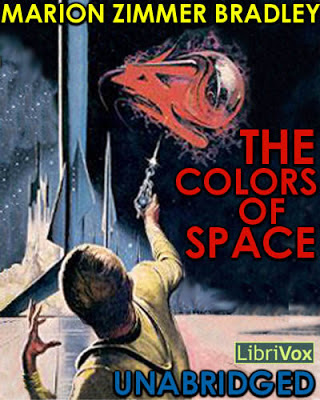These are the heroes of the Starry Rift, a dark river of night that flows between the arms of our galaxy: A headstrong teenaged runaway who makes first contact with a strange alien race. A young officer on a deep-space salvage mission who discovers an exact double of a woman he thought he'd lost. The crew of an exploration ship who must plead for the human race to avert an interstellar war.
The Starry Rift is set up with a framing narrative about two students seeking library materials for class. The books the librarian gives them form the three stories contained within this collection. The stories are all set around the same general region of space: Federation Base 900, the frontier outpost on the edge of the Rift. (Hence the title.) The Rift is an area of space devoid of stars, apparently not quite in between spiral arms of the Milky Way, but something like that.
I have to say, the science in this book was a bit off. Some of it was quaint — as in, not up to date, as would be expected of an older book like this — and some of it did not entirely make sense. I was a bit confused about the relativistic and also normal time passing effects of space travel which didn't seem to be addressed in the first story but were explained more in the third. On the other hand, the scientific points in these stories were generally not dwelt upon, decreasing the likelihood of an egregious error. None of the stories were about new inventions; they were all, first and foremost, about characters in unusual situations. (But aliens who have FTL comms but not pretty fundamental chemistry? Come on!)
Anyway, as per usual I have made comments on the individual stories which you can find below. In general, I would recommend this collection as a good example of classic SF. While the science may not have stood the test of time, the concepts explored in the stories mostly have.
The Only Neat Thing to Do — A fourteen year old girl (with rich parents) gets a space coupe from her parents, tricks it out with extra fuel tanks and goes exploring to the edge of Human-explored space. It started out as a fun adventure, if a little unlikely since fourteen year olds can't have cars, and took some interesting and then emotional turns. (I really wasn't expecting the sort of ending it had.) There were a few weird science-related moments but they weren't dwelled on by the narrative, so I found them easier to skip over than in most books. (Why do so many books use bad science as a lynchpin?) As a first introduction to Tiptree, I found it a solid story. (Coming back after finishing the collection, this was my favourite of the three.)
Good Night, Sweethearts — A space salvager/repairman/portable refueller comes across a stranded ship that's out of fuel. It transpires that it contains someone from his past. A past that, almost interestingly (it could have been explored further), he doesn't remember due to what I gathered to be PTSD-type treatment he received after being in a war. Some external action provides excitement and the climax and the main character is left with some difficult decisions. I was disappointed with how much these objectified the female characters. I also found his final choice baffling, though perhaps less so, given some of what I've recently learnt about the author's life.
Collision — This is the story of first (well, second) contact between the human Federation and a large alien empire. Told from points of view on both sides, we learn a lot about the culture and unusual biology of the aliens before the human protagonists come across them. The biological procedure of reproduction was very unusual — honestly it struck me as a bit inefficient — for all that the aliens resemble kangaroos in superficial ways. I liked that after explaining the mechanics of it, the notion turned out to be relevant to the plot in an unexpected way. On the human side of things, the story starts off being told through long-delayed communications capsules. We listen to the story along with the people at base, knowing only that the explorers survive long enough to send the capsule, but nit whether there'll be another capsule. Although this is actually a relatively cheery story in the end, there is still some death, notably of the only two human women (although they didn't die because they were women). It's still less bleak than the first story in this collection.
4 / 5 stars
First published: 1986, this edition SF Gateway
Series: Well, not really but there are other stories and a novel set in the same universe
Format read: eBook
Source: Purchased on iBooks



